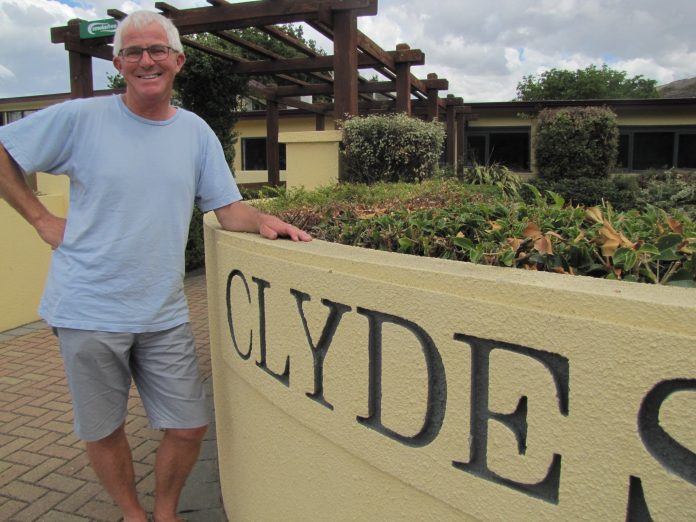Undeterred by a screaming northerly gale, my 9›month› old grandson Herbie and I stepped out to taste the delights of central Wellington.
My recent ‘‘Mrs Doubtfire’’ assignment arose from a request from my daughter for me to take on the role of nanny for a couple of days while she was working in Wellington.
I had accompanied groups of senior primary school pupils to the city for many years so I felt confident enough to sign up for Charlotte’s assignment.
It sounded like fun and Herbie hadn’t had much grandad time thanks to the rather annoying worldwide pandemic.
The tricks of baby parenting seemed to quickly return to me, even though it’s been more than a couple of decades since Christine and I were wrangling three toddlers.
We rode the cable car gratis, courtesy of grandad’s Supergold Card, had a wonderful sensory walk through the dripping bush of the botanic gardens and admired the freshly sown grass outside parliament while keeping a safe distance from a chap in an orange boiler suit shouting pandemic›related grievances through a megaphone at the grey facade of parliament buildings.
I was admonished by one elderly woman for not having a hat on the baby in such inclement weather but I deflected the blame to my grandson who insisted on throwing it off whenever it was placed on his head.
Herbie had plenty to talk about during and after our walk.
It reminded me of the importance of talking to a baby, particularly during his first 1000 days of life as it has such a profound influence on his cognitive development.
Neuroscience educator Nathan Mikaere Wallis tells us that the number of words spoken to a baby in their first three years of life directly correlates to success at school and later life.
During my last few years of working in schools I heard new entrant teachers increasingly talk about their concerns that a significant number of 5›year›olds struggled with speaking and listening at a very basic level when they arrived at school.
The early childhood curriculum document Te Whariki sums the importance of early oral language perfectly when it says ‘‘reading and writing float in a sea of talk’’.
Arresting our decline in literacy standards and setting a great foundation for learning to read and write starts with having many rich and engaging chats with your baby during those early years.





